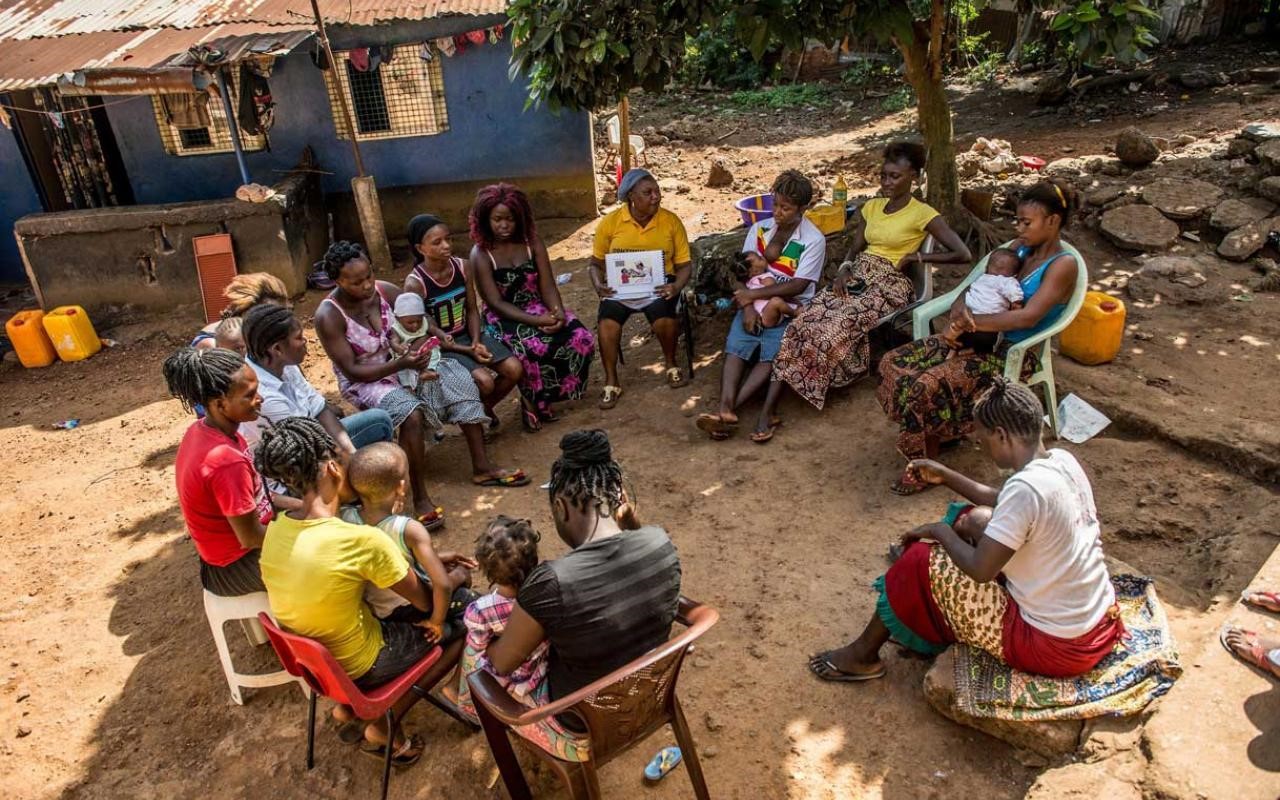The West Africa Network for Peacebuilding (WANEP)–Sierra Leone has organised engagements with market women/traders, headmen, traditional leaders, Mammy Queens, Chairladies and other stakeholders from Tombo, Waterloo and Grafton communities to prevent conflicts, how to carryout justice and accountability for people to live in harmony through the Alternative Dispute Resolution (ADR) especially as the June 2023 elections are fast approaching.
The aim of the community initiative project is to use the Alternative Dispute Resolution (ADR) to settle disputes to prevent litigants from going to court all the time. ADR committees have been formed in various communities to address such issues.
The engagements took place respectively at the Scouts Training Center, Grafton in Western Area Rural and also in Koidu Town, Kono District, Eastern Sierra Leone.
The community town hall engagements on peace and social cohesion and local justice issues were in a bid for participants to identify early warning signs to prevent conflicts in various markets and communities in the two project districts.
This is why the Africa Transitional justice Legacy Fund is supporting WANEP-SL and other implementing partners to help on transitional justice issues in the country.
Coordinator, Women Led Community Project, WANEP, Catherine Kekura revealed that they have organized several of such engagements with various stakeholders, that the one-year project would be extended if the need arises adding that the women-led initiative is to promote peace, social cohesion and justice.
Participants identified some of the causes of conflicts relating to abuse/misuse of power, political highhandedness, corruption, tribalism, political intimidation of the opposition, lack of confidence in the police and judiciary, that guns are awash around the Freetown Peninsula, youth unemployment, lack of basic services, polygamy, power struggle, micro-credit loans to women the reason some of them who are unable to repay abandon their communities and families, increase in HIV/AIDS, prostitution and that the causes of the civil war are still prevalent.
The discussions were centered on what affects peace in a community to which participants responded that politics, injustice, poverty, gossiping, misinformation, the highhandedness and misrule by traditional leaders, the harsh economic situation in the country, land acquisition, increase in the use of drugs by youths, unemployment and cajoling customers in markets.
They also recommended that the constitutional review process be continued, that the Legal Aid Board should organize a meeting with the heads of the security forces and other stakeholders to address the issues raised, that state institutions have been politicised, that social cohesion is a major challenge and that WANEP should reach out to churches and mosques for continue engagement that will promote peace and other related peacebuilding efforts.
Other recommendations are for WANEP to promote peace, social cohesion, and justice in other communities by scaling up their interventions. They also recommend that the police officers should be thoroughly screened during recruitment processes, in order for them to be more professional and put an end to police harassment of traders especially women, in the work they do.
The participants further called for continued engagement with traditional and religious leaders as well as, undertake civic education, end excessive fines by local and traditional leaders, community outreach to youths, social media misinformation/mischief, review of the Code of Ethics for chiefs, ending political provocation, ending bribery in school admissions, addressing women issues in addition to tribalism.
Participants unanimously resolved that WANEP alone cannot solve all the problems in society without the support of other stakeholders.
Some of the participants interviewed asserted that they have benefited a lot from the project interventions, and they now settle disputes in their communities and markets and appealed that the project be continued adding that they also disseminate the knowledge and information gained from the engagements to their various communities and markets.
They claimed that, there has been reduction in conflict related issues in the market place and women are taking advantage of the opportunity this project presented to better empower themselves and in decision-making issues in the market place and their homes as well.

